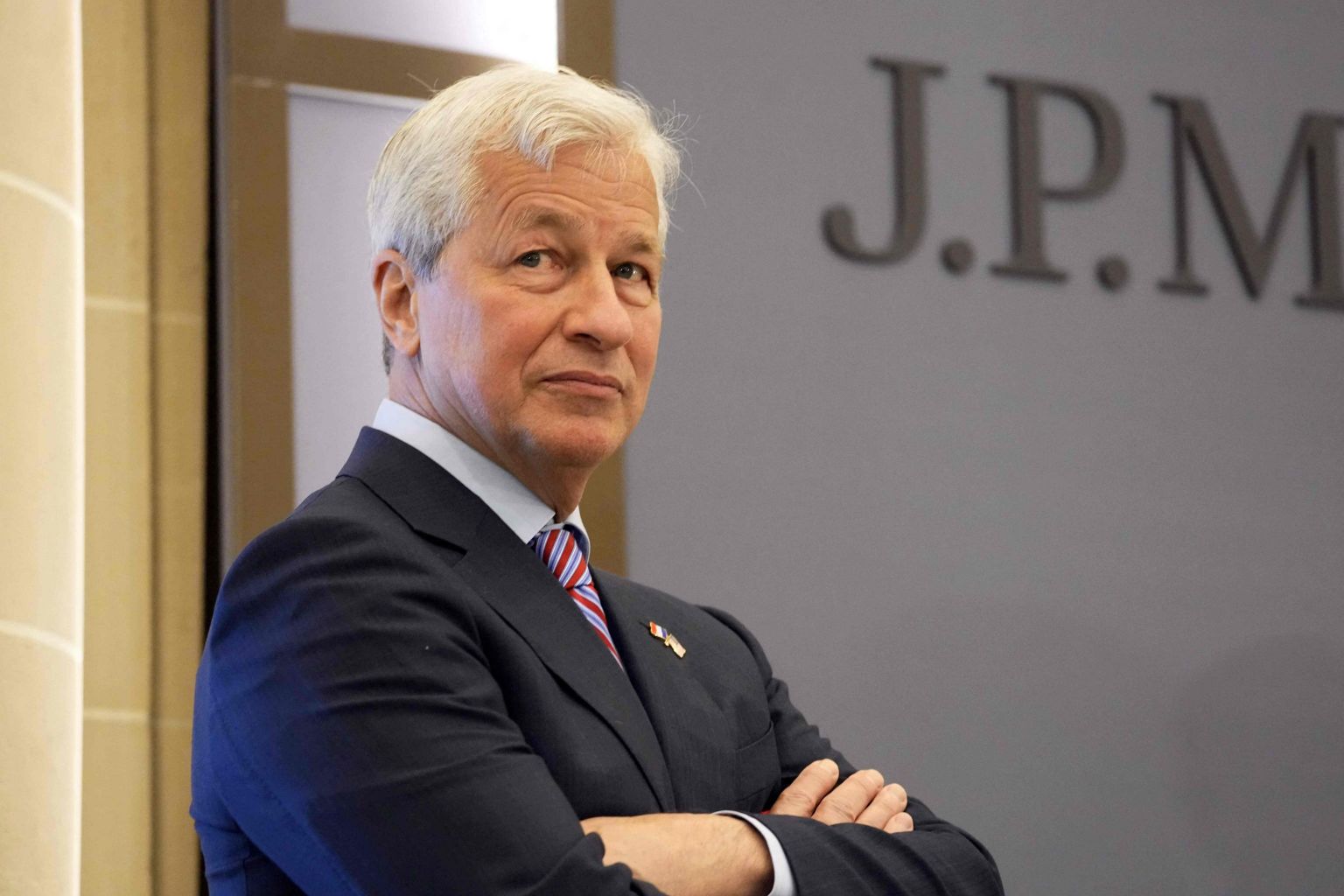JPMorgan CEO Jamie Dimon jokes that US bank will outlast China's Communist Party
Sign up now: Get ST's newsletters delivered to your inbox

JPMorgan CEO Jamie Dimon reiterated his bank's commitment to doing business in China.
PHOTO: AFP
Follow topic:
NEW YORK(BLOOMBERG, REUTERS) - JPMorgan Chase and Co's chief executive officer Jamie Dimon joked on Tuesday (Nov 23) that his bank would last longer than China's Communist Party.
While reiterating his bank's commitment to doing business in China, Mr Dimon said: "I made a joke the other day that the Communist Party is celebrating its 100th year - so is JPMorgan. I'd make a bet that we last longer."
His eyebrow-raising joke while speaking at the Boston College Chief Executives Club has so far been met by public silence from officials in Beijing.
But with nearly US$20 billion (S$27.3 billion) of exposure in the world's second-largest economy - and big ambitions to expand even further - the US bank has a lot riding on maintaining cordial relations with a government that's sensitive about anything that might be construed as questioning its legitimacy.
In one sign that JPMorgan is attuned to the risks, members of the bank's government relations team and China offices had internal discussions about Mr Dimon's remarks, according to a person familiar with the matter.
While some executives expressed concern that the joke could be viewed as insensitive, the government relations team told the group that Mr Dimon intended to stress the longevity of JPMorgan's China business rather than criticize the party. As of midday Wednesday in China, the bank hadn't communicated with local government officials on the issue, the person said, asking not to be identified discussing private information.
Chinese media, often quick to criticize perceived slights against the country by international companies, have yet to cover Mr Dimon's remarks on the party even as they wrote about several of his other comments on cryptocurrencies and US policy risks at a panel discussion on Tuesday.
JPMorgan earlier this year became the first Wall Street bank to gain full ownership of a securities venture in China and has said it is investing 2.67 billion yuan ($570.5 million) in China Merchants Bank's wealth management unit. The bank's total exposure to China stood at US$19.7 billion as of September, mainly from lending and deposits, trading and investing, according to a regulatory filing.
China has a history of taking action against companies and individuals that appear to challenge its policies or slight it in anyway, particularly on sensitive issues including Taiwan, which Dimon also referenced on Tuesday. In 2019, UBS Group came under pressure to fire its chief economist, Paul Donovan, after he made a comment about a "Chinese pig" in a note about rising consumer prices. He later apologized, saying it was "innocently intended." China also broke off relations with Norway for several years after dissident Liu Xiaobo received the Nobel Peace Prize.
China's financial markets are a potent lure for the world's biggest banks, with billions of potential profits on the line in investment banking and wealth management. Wall Street firms are doubling down on country despite elevated US-China tensions and an increasingly opaque regulatory environment as President Xi Jinping cracks down on swathes of the private sector.
China has a history of taking action against companies and individuals that appear to challenge its policies or slight it in anyway, particularly on sensitive issues including Taiwan, which Dimon also referenced on Tuesday. In 2019, UBS Group came under pressure to fire its chief economist, Paul Donovan, after he made a comment about a "Chinese pig" in a note about rising consumer prices. He later apologized, saying it was "innocently intended." China also broke off relations with Norway for several years after dissident Liu Xiaobo received the Nobel Peace Prize.
China's financial markets are a potent lure for the world's biggest banks, with billions of potential profits on the line in investment banking and wealth management. Wall Street firms are doubling down on country despite elevated US-China tensions and an increasingly opaque regulatory environment as President Xi Jinping cracks down on swathes of the private sector.

